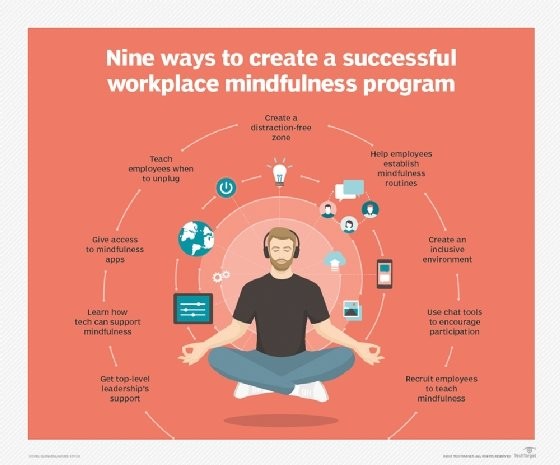Time management is the art of organizing and planning your time to maximize efficiency and effectiveness. It involves strategically coordinating tasks and activities, enabling you to accomplish more in less time and achieve your goals more effectively. Mastering time management is about more than just being busy; it’s about being productive and in control of your workload and life.
Why is Time Management Important?
Effective time management is crucial because it gives you a sense of control over your time, allowing you to prioritize what truly matters. In the professional realm, it sets clear expectations and goals for both companies and their employees. Strong time management skills empower employees to deliver high-quality work and meet deadlines, while also helping managers understand employee capabilities and set realistic objectives.
Conversely, poor time management can lead to missed deadlines, subpar work quality, increased stress, and a constant feeling of being overwhelmed. Inefficient use of time negatively impacts employees, management, and the overall company performance.
“Time poverty,” the feeling of having too much to do and too little time, is a direct consequence of poor time management. Individuals in this state often find their personal lives suffering and feel burdened by responsibilities, despite their hard work.
Time management necessitates making conscious choices about how you allocate your time. Without it, individuals become reactive to external demands, losing control over their work and personal lives.
While all work requires time, some tasks contribute more value than others. Reallocating time to high-value activities boosts productivity and improves work-life balance, leading to a healthier and more fulfilling work environment.
Benefits of Effective Time Management
The advantages of good time management extend to both businesses and their employees, including:
- Happier Employees: When employees have sufficient time to complete their tasks, they experience less stress and are less susceptible to burnout.
- Improved Creativity: Freed from time constraints, employees can engage more creatively with their work, leading to innovation and fresh ideas.
- Reduced Absenteeism: Stressed and burned-out employees are more likely to take time off due to illness or other reasons.
- Lower Turnover: A positive work experience encourages employees to stay in their jobs longer, reducing turnover rates.
- Increased Productivity: Employees who are engaged, less stressed, and less likely to be absent are naturally more productive.
- Enhanced Reputation: Companies that prioritize effective time management are perceived as desirable workplaces, improving employee recruitment and retention.
Challenges to Time Management
Mallary Tytel, founder of Healthy Workplaces, identifies internal and external barriers to effective time management.
Internal barriers stem from the individual and their control, encompassing factors like:
- Lack of Self-Control: Individuals easily distracted may struggle to stay on task and meet their goals.
- Procrastination: Delaying tasks until the last minute creates unnecessary pressure and stress.
- Lack of Motivation: A lack of purpose or interest in a task can lead to avoidance and missed deadlines.
- Anxiety: Stress can impair focus and decision-making abilities.
- People-Pleasing: Attempting to satisfy everyone’s needs often leads to overcommitment and burnout.
- Multitasking: Attempting to perform multiple tasks simultaneously can result in decreased efficiency and errors.
These internal factors relate to an individual’s habits and behaviors. While these behaviors may be unconscious, individuals can modify them to improve their time management skills.
External barriers arise from outside the individual, including:
- Excessive Workload: Overwhelming workloads can make it difficult to prioritize tasks and meet deadlines.
- Job Constraints: Limitations imposed by the job or workplace can hinder progress.
- Lack of Resources: Inadequate resources can make it difficult to complete tasks effectively.
- Distractions: External factors such as family emergencies or constant notifications can disrupt focus.
Although external barriers are beyond an individual’s control, they can control their responses to them.
Practical Time Management Tips and Techniques
Here are actionable strategies to improve your time management skills:
- Track Your Time: Keep a journal of your activities for a week to identify your most productive times and schedule tasks accordingly.
- Prioritize Tasks: At the start of each day, create a to-do list with measurable goals and methods for achieving them.
- Schedule Strategically: Allocate time for tasks based on priority and include buffer time for unexpected interruptions.
- Manage Communication: Schedule specific times to check email and instant messages instead of constantly reacting to notifications.
- Batch Similar Tasks: Group similar tasks together to minimize context switching and increase efficiency.
- Anticipate Interruptions: Factor in time for potential interruptions when scheduling tasks.
- Manage Your Workload: Don’t overcommit yourself and communicate any unreasonable demands to management.
Here are some popular time management techniques and tools:
- Pareto Analysis: Focus on the 20% of activities that yield 80% of the results.
- Eisenhower Matrix: Prioritize tasks based on urgency and importance (urgent/important, not urgent/important, urgent/not important, not urgent/not important).
- Time Blocking: Allocate specific blocks of time for particular tasks.
- Getting Things Done (GTD): Capture, organize, plan, and execute tasks to reduce stress and increase productivity.
- Pomodoro Technique: Work in focused 25-minute intervals with short breaks to maintain concentration.
- Productivity Apps: Utilize apps to set reminders, create schedules, and track progress.
Time Management in Management Theory
Many time management techniques are integrated into project management to help teams achieve their goals. Time management is also a key element of business process management (BPM), which focuses on streamlining workflows to improve efficiency.

